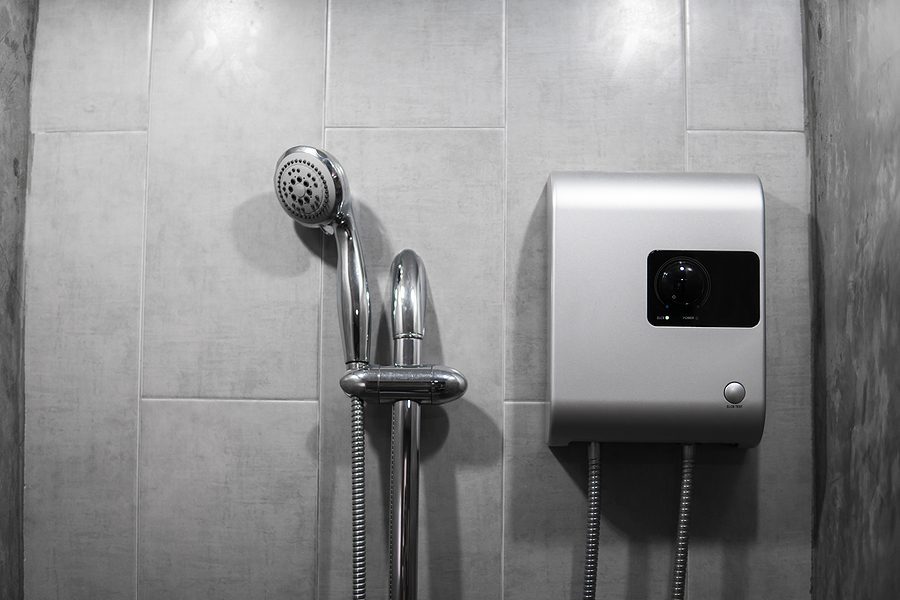 Tankless water heaters are quite popular for their ability to offer hot water on demand. They don’t have the standard energy loss associated with storage type water heaters. As a result, you can continue to save money in the long run. Basic details regarding how they operate, if a tankless water heater is a good fit for your house, and what factors to consider when choosing a type are all covered here.
Tankless water heaters are quite popular for their ability to offer hot water on demand. They don’t have the standard energy loss associated with storage type water heaters. As a result, you can continue to save money in the long run. Basic details regarding how they operate, if a tankless water heater is a good fit for your house, and what factors to consider when choosing a type are all covered here.
How Do Tankless Water Heaters Work?
Water is heated immediately using tankless water heaters, which do not need a storage tank. Cold water enters the unit via a pipe when a hot water tap is switched on. The water is heated by an electric element or a gas burner. Tankless water heaters provide a steady supply of hot water as a result. Waiting for a storage tank to become sufficiently full of hot water is not necessary.
A tankless water heater can typically provide two to five gallons (7.6 to 15.2 liters) of hot water per minute. The flow rates of gas-fired tankless water heaters are greater than those of electric ones. Occasionally, however, even the biggest gas-fired model is unable to provide large homes with adequate hot water for numerous simultaneous usages.
For instance, a tankless water heater can reach its limit when you simultaneously run the dishwasher and take a shower. Installing two or more tankless water heaters linked in parallel to provide simultaneous hot water needs is one way to solve this issue. For equipment in your house that need a lot of hot water, such a dishwashing machine or clothes washer, you can also install standalone tankless water heaters.
Demand water heaters can also be used for the following purposes:
- Distant restrooms or hot springs
- Appliance booster for laundry washers and dishwashers
- A solar water heating system’s booster.
- Positives and Negatives
Why Should You Consider Getting a Tankless Water Heater?
Demand water heaters can save homeowners up to 24%–34% on energy costs compared to traditional storage tank water heaters for households using 41 gallons or less of hot water each day. If a household uses 86 gallons of hot water a day, they can save 8–14% on energy costs. If you install a demand water heater at each hot water outlet, you can save even more energy—between 27% and 50%. An ENERGY STAR rated tankless water heater can save an average household up to $100 annually, according to ENERGY STAR® calculations.
Although a tankless water heater requires a larger initial investment than a traditional storage water heater, its longer lifespan and cheaper energy and running expenses can more than make up for this difference. Most tankless water heaters are designed to last for over 20 years. Additionally, they feature readily replaceable components that add many more years to their lifespan. Storage water heaters, however, only last ten to fifteen years.
The standby heat losses connected to storage water heaters can be avoided using tankless water heaters. Gas-fired tankless water heaters can lose energy if their pilot light burns continuously, even though they typically have greater flow rates than electric ones. In comparison to a storage water heater, this can sometimes outweigh the removal of standby energy losses. The pilot light of a gas-fired storage water heater warms the water in the tank, saving energy.
The cost of running a tankless water heater’s pilot light varies depending on the type. Find out from the manufacturer how much gas the pilot light on the model you are thinking about consumes. If the type you choose includes a standing pilot light, you can always switch it off to save energy when not in use. Models using an intermittent ignition device (IID) in place of a standing pilot light should also be taken into consideration. This gadget is like the spark ignition system used on certain gas stoves and ovens.
How to Select an On-Demand Water Heater
Prior to purchasing a demand water heater, you should also think about the following:
- Dimensions
- Type and availability of fuel
- Costs
- Energy efficiency (energy factor)
- Installation and maintenance
The energy efficiency of your demand water heater can be maximized with proper installation and maintenance.
Proceeding with Installation
Many variables must be met for a proper installation. These variables include the kind of fuel used, the climate, the local construction codes, and safety concerns, particularly about gas-fired water heater combustion. Thus, it’s advisable to have your demand water heater installed by a licensed plumber and heating expert. When choosing a contractor, do the following actions:
- Request written cost estimates
- Request references.
- Verify the business with the Better Business Bureau in your community.
- Find out whether the business is aware of local construction standards and will get a permit if needed.
Before installing your water heater, be sure you speak with the manufacturer. Instruction manuals and installation guides are often available from the manufacturer. Additionally, inquire with your town or city about local water heater installation rules and if a permit is required.
Regular maintenance can reduce efficiency loss and greatly increase the life of your water heater. To learn about maintenance advice, see your owner’s handbook.
Increasing Energy Efficiency
Once your demand water heater has been built and maintained correctly, you can attempt a few more energy-saving techniques to assist reduce your water heating costs. Installing some energy-saving technologies and gadgets beside the water heater can save money.

